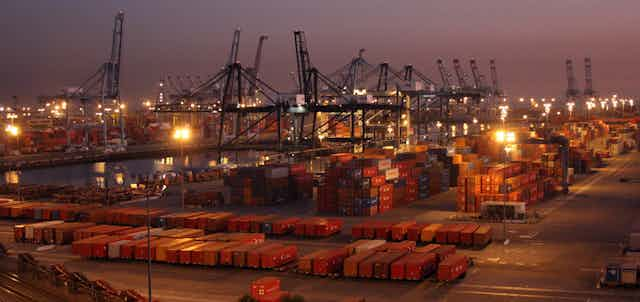Efforts to build a more effective trading regime between Europe and the USA can reasonably be called positive, both for growth and the ease of doing business. Currently, however, negotiations include proposals which threaten to distort the way governments regulate companies and which might cost the taxpayer dearly.
Back in 2011, the Australian government announced:
The Government does not support provisions that would confer greater legal rights on foreign businesses than those available to domestic businesses. Nor will the Government support provisions that would constrain the ability of Australian governments to make laws on social, environmental and economic matters in circumstances where those laws do not discriminate between domestic and foreign businesses.
Australia took this step as, under the provisions of her 1993 trade treaty with Hong Kong, she was effectively being sued for compensation over the impact of an anti-smoking policy. Part of the treaty gave multi-national corporations the right to investment treaty arbitration, the right to seek compensation for the impact of government policy on profits. According to international lawyer George Kahale, III, under such provisions:
Claimants are prone to bring exaggerated claims, encouraged by the availability of third-party funding, and are supported by a systemic bias against states.
Australia may have learned her lesson: Europe, outside of Germany, may not.
TTIPing the balance

The EU and the USA are engaged at present in setting up a trade agreement, the Transatlantic Trade and Investment Partnership (TTIP) which, so it is said, will be of benefit to both parties. A major feature of TTIP is to do with the harmonisation of regulations between the EU and the USA. In one sense, this is all to the good – certainly nations must cooperate and most economists believe that free trade to some extent or another can lead to economic growth. However, the sticking point for many is the inclusion in the TTIP negotiations of the contentious Investor to State Dispute Settlement (ISDS) provision.
ISDS gives international investors the right to bring a case for damages against the local government if they (the investors) feel government policy has harmed their interests. A supposed independent international tribunal hears such claims. In other words, under ISDS, multinational corporations have the right effectively to sue a sovereign state, demanding the state (that is, the taxpayer) compensates them for enacting domestic policy if it reduces profitability below that which was expected.
What’s the problem?
On one hand, it might seem fair enough to protect corporate foreign investment from the risk of changes in domestic policy – however, the way ISDS addresses this risk creates, at the least, the potential for distortions in the market.
The legitimate concerns of governments and corporations are such that there will occasionally be disagreements between them. According to the economist Milton Friedman (writing in Capitalism and Freedom), government should maintain law and order,:
foster competitive markets … [and] government may enable us at times to accomplish jointly what we would find it more difficult or expensive to accomplish severally.
On the other hand:
There is one and only one social responsibility of business to use its resources and engage in activities designed to increase its profits so long as it stays within the rules of the game
Here there are clear potential conflicts of interest. The responsibility of the corporate sector is to maximise profits, while the responsibility of government is to promote competition which might reduce corporate profits; also governments must promote the public good – which is likely in some instances to affect corporate profits, for example in controlling pollution or enforcing health and safety legislation. Establishing a means by which disagreements might be resolved is, therefore, of some importance. However, to this end, the ISDS is not an efficient means – it is apparently skewed.
Inequality before the law
Because of the way ISDS is formulated, the rule of law is arguably compromised. In the first place, foreign investors in a host nation have access to ISDS arbitration – domestic industry does not have such access. This asymmetry gives the multi-national investor a competitive advantage over purely domestic rivals.
And ISDS is arguably biased against the state. If we subsume the state’s fostering of competitive markets into their promoting public good, we see disagreements between business and the state are likely to arise when:
- In order to prevent the compromise of public good, some activities of business must be constrained, or
- The state, for one reason or another, might not be pursuing public good, but rather (corruptly) be penalising business.
In the first instance: where the corporate pursuit of profits is reducing public good, it is by no means clear why multi-national corporations should be compensated for being required to cease or reduce this activity. We might argue rather that business should compensate the state for any damage they have committed – this is certainly what economic theory would suggest.
In the second instance: where government policy does not promote public good, there is certainly scope for compensation. However, there is no reason to limit access to redress. The citizens of the nation whose interest is being side-lined ought to be afforded the means to take their leaders to task. ISDS does not address issues of (potential) lack of democratic accountability – rather the opposite.
When you pull together the evidence, it is perhaps little surprise that this is one of those rare beasts of policy where right-leaning organisations, such as the Cato institute, and left-leaning, such as trades unions, are united in opposition.
The Cato institute says:
ISDS arguably weakens the rule of law, forces the public to subsidise the risk of multi-national investment abroad, and effectively encourages outsourcing.
According to George Kahale, III, in practice such arrangements are no better than in theory. He warns darkly that current investment treaty arbitration systems are “seriously flawed … weapons of legal destruction”.

